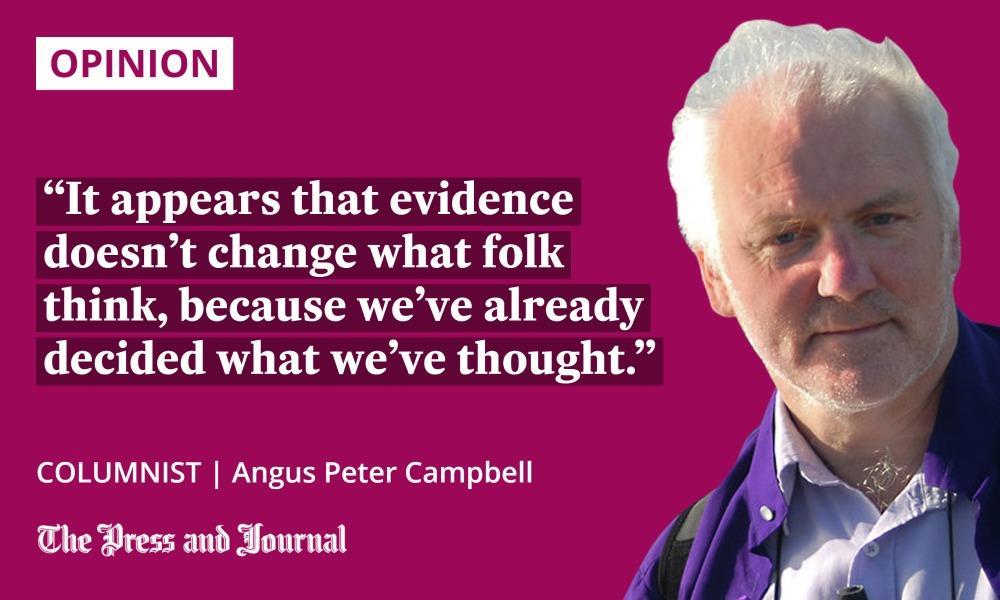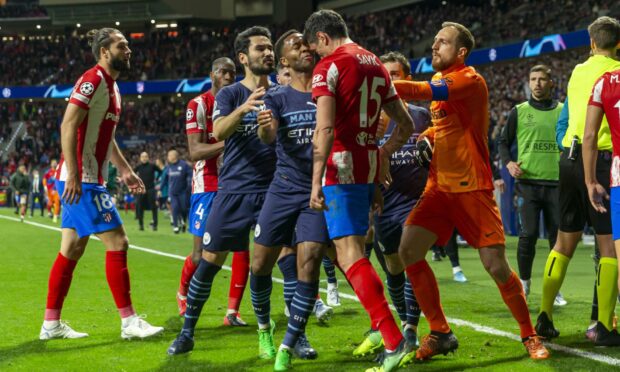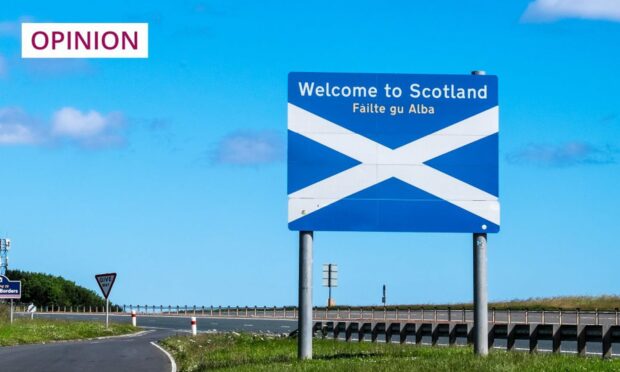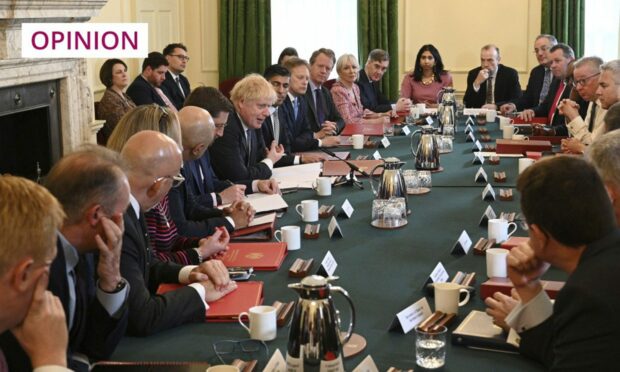I’m probably in a minority, but I quite liked Atlético de Madrid’s carry-on in their game against Manchester City last week.
For those of you who didn’t see, it was a good auld fashioned stairheid rammy in one of the prestigious millionaires’ Champions League matches.
The best thing was that it reminded me of some of Oban’s finest, wielding their shinty sticks with good Highland vigour when opposition teams arrived over the hills from wild, far away places like Fort William.

Or, as the disappointed men used to say in South Uist when returning unscathed from the dances down in Balivanich: “I went for a fight and a dance broke out.”
It’s all to do with culture, and expectation. A sort of self-fulfilling prophecy.
We all have our preconceptions and expectations
Scientific experiments demonstrate that, despite what is “objectively” in front of our eyes, when shown a familiar object (such as a red Coca-Cola can which has been deliberately changed to grey) we still see what we expected to see: a red can, even though it’s actually 100% grey with no red pixels whatsoever in the image.
I’m not sure how far this self-deception goes. When we visit the Gàidhealtachd and expect to see hills and glens and lochs and – let’s say – the Loch Ness Monster, and all we see are campervans and traffic jams and the plastic beast at Drumnadrochit, do we still return home with the first image, because we finally glimpsed Loch Ness looking all misty and moody with something moving in the shadows as we drove back home in the twilight?
The implications are interesting. Artists, for example, mostly see what they paint rather than paint what they see, and writers (and journalists and the media) see what they write rather than write what they see.
Priti Patel is right and the Archbishop of Canterbury is wrong. What does he know anyway?
For we all have our preconceptions and expectations; my delight when I see a road sign in my native Gàidhlig saying “An Gearastan” and – no doubt – some non-Gaelic speakers’ dismay when they see that same sign and gnash their teeth and end up in mysterious Mallaig rather than in fabulous Fort William.
It appears that evidence doesn’t change what folk think, because we’ve already decided what we’ve thought. So, Brexit is brilliant, despite all the evidence. Donald John lost the presidency, despite all those other votes.
Priti Patel is right and the Archbishop of Canterbury is wrong. What does he know anyway? Some say potato and some say potatah. I say bùntata!
Traditions aren’t all croquet, tea and cucumber sandwiches
But, back to the stairheid rammy in Madrid. It has cultural roots. By which I mean the historic background which frames all our activities, from the language we speak to the games we play.
Bùrn, for example, is the Gàidhlig word commonly used in Lewis for water, whereas in my native Uist we call it “uisge”. So, given no other evidence, I’d generally be able to distinguish between an Uibhisteach and a Leòdhasach by the simple usage of that single word.
There are other distinctions, of course, (Leòdhasaich tend to wear bigger trousers) but it just goes to show that our words can verify or betray us. As Prime Minister Johnson knows, too.
I’ve always been interested in the heroic element in Highland/Gàidhlig history. The degree to which our culture has been shaped and framed by the heroic tradition. The Fèinne (the Fingalian Warriors) are still resting on their elbows waiting for the trumpet to blow. The bardic and storytelling tradition shapes itself around heroic exploits, from cattle raids through to getting to marry the King of Greece’s daughter.
It’s a tradition slightly different to croquet and tea and cucumber sandwiches on the lawn. No wonder the British state and all its arms has spent centuries trying to civilise us wild Highlanders.
Away with our kilts and broadswords and barbarous language! Away with our fighting, and even our dancing! Off to Rwanda with you…
Players know football is a manifestation of culture
I’m not saying that Atlético’s Stefan Savić or Felipe Monteiro were Fingalian heroes against Man City last week. Or maybe I am.
Increasingly, the way to play and win or lose is narrowly defined by television and its pundits
They know that the game of football is a mere manifestation of culture: a way to contest and compete, a way to validate themselves and what they believe in, a way to lose or win. And there are so many different ways to do that.
It’s just that, increasingly, the way to play and win or lose is narrowly defined by television and its pundits. Which reduces the heroic and the improvised to freeze-frame media moments, as if desire and passion and skill and language and history and culture are mere playthings to be controlled, rather than complex emotional forces to be understood.
As Atlético’s manager, Diego Simeone, so eloquently put it after the match: “Just because some of us have a simpler vocabulary doesn’t mean we’re stupid.”
Angus Peter Campbell is an award-winning writer and actor from Uist



















Conversation